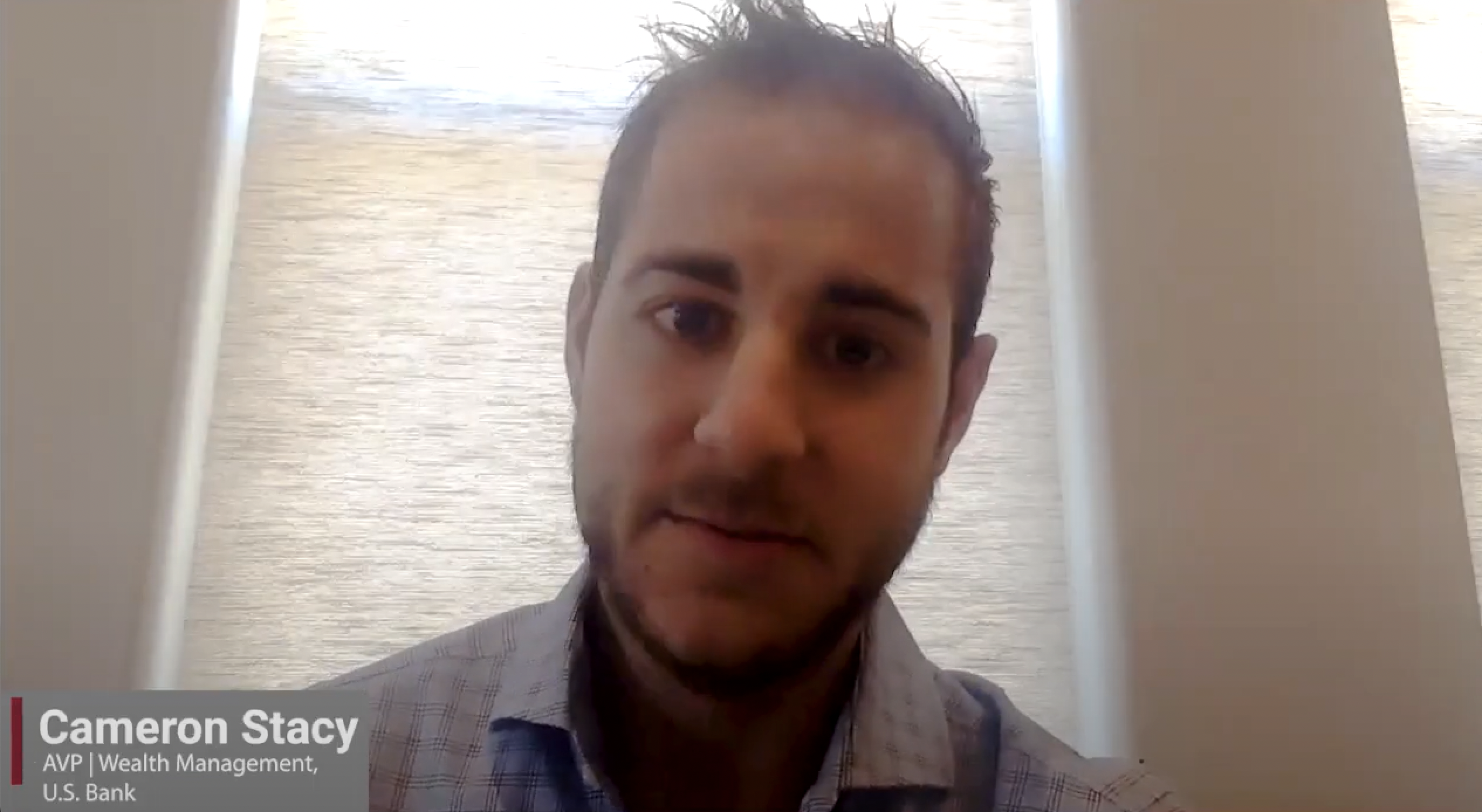Career Pathway Video Series Interview: Cameron Stacy
Cameron Stacy
Assistant VP - Wealth Management, U.S. Bank
Management, 2015
Although Cameron Stacy earned a bachelor’s degree in management from the Fowler College of Business at San Diego State University fairly recently (2015), he has already risen to the level of assistant vice president within the U.S. Bank’swealth management department.
As part of the Career Pathways video series, Stacy talked with fellow Fowler management grad, Andy Esparza (’81). The two discussed Stacy’s position at U.S. Bank and how his education at SDSU helped him accelerate his career path.
Esparza: Tell us a little bit about the job you’re doing today?
Stacy: As an assistant vice president doing wealth management, I do a lot of asset management, lending banking-related financial services on the private banking side of the organization. I generally start with clients who have checking and savings accounts and then I build on that. Typically, I start by helping them with a financial plan and then I work with a teammate who specializes in financial advising aspect for the client.

Cameron Stacy
Esparza: Do these clients tend to be high net worth individuals? Can you tell us about their financial situation?
Stacy: The ideal client must have $250,000 in liquid or investable assets and has a willingness to start planning for retirement or a future goal.
Esparza: So, how did you end up in financial services?
Stacy: I fell into it, and I like to tell the story. I was a manager of a Jamba Juice in Sacramento, where I’m from. When I was a freshman at SDSU, they offered me a general management position to run a branch of Jamba Juice, but I realized that a career in the food industry wasn’t what I wanted to do forever.
After attending a career fair at SDSU, I saw an opportunity in banking which I thought could be my first “big boy” job. I started as a teller at Union Bank and kept working my way up into financial services. It’s been great since I really relate with people and it’s a profession that I really enjoy doing.
Esparza: I think a lot of students are a little hesitant about attending a career fair. Do you have any advice on how to engage in those types of situations?
Stacy: Just be okay with being awkward. The recruiters at the job fairs want to hire students — that’s why they’re there. And they want to meet as many people as possible that fit into their company and to help students get a start in a career. So be okay with being awkward — just go up and say “hello” and let the conversation go from there.
Esparza: What are the most important skills you need to be successful as a wealth manager in the financial services industry?
Stacy: It’s a lot of relationship building, getting to know clients and what’s important to them. It’s listening, calling and building relationships with people and getting to know exactly what I can do for them. Also, time management is key, so managing your clients while managing your life is really important.
Esparza: I’m sure you have a list of existing clients, but are you also responsible for going out and finding new clients?
Stacy: I am and I do have a goal to bring revenue into the bank. My job is to create and grow revenue for the bank. Right now, I’m running about 15 branches in the San Diego area with a lot of clients, so we get a lot of referrals. I also meet people in specific targeted industries, like accountants or a mortgage broker that might refer our bank to help clients with deposits, lending or financial advising.
So, really, my job is about building relationships and having those people trust me. At this point in my career, I rarely do any outbound calling, I just have people coming to me saying they need help or they need a certain product.
Esparza: How do you think San Diego State prepared you for your position and for your own leadership style?
Stacy: I got a lot out of my leadership classes, and I was vice president of a fraternity which helped me to speak and work in a professional environment.
But the group projects you do in your classes are really key. A lot of times they don’t seem fun, but in the real world you work in teams with people that aren’t like you, so it’s important to manage your leadership style and personality so that you can work with people that you might not agree with, but you can bring value to. It’s all about how you communicate with people.
Esparza: What advice would you give students in helping them find their passion and launch their career?
Stacy: It really boils down to goal setting, so find what you’re passionate about and figure out what you like doing. Then, I really recommend going to a career fair and exploring opportunities that are right in front of us.
Esparza: The Career Management Center does have a lot of great assessment tools to help you match what you’re good at with potential career fields. And I like your advice about networking at career fairs where you can find people that understand what might be a good fit for you.

